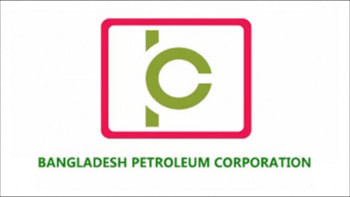Ananya’s remarkable feats in microbiology

Ananya Ferdous Hoque is a researcher in Virology at the International Centre for Diarrhoeal Disease Research, Bangladesh (icddr,b). She graduated with a BSc in Microbiology from North South University, and pursued an MRes at the University of Manchester.
She is also an active frontline researcher on icddr,b's emergency Covid-19 initiatives, in collaboration with the government.
Ananya's cutting-edge research and relentless contribution to the public healthcare scenario granted her a place in the Dhaka Hub Global Shapers Cohort 2021.
The Global Shapers are a community of young leaders and changemakers aged between 20 and 30, curated by the World Economic Forum. The Dhaka Hub was founded in 2014.
In an interview with The Daily Star, Ananya talked about her research interests, and more.
Can you explain what your research is about?
My research focuses on the genetic surveillance of common human respiratory and enteric viruses such as the Nipah virus, norovirus, influenza and coronavirus during their seasonal and non-seasonal outbreaks. I perform regular real-time RT-PCR testing of Covid-19 suspected individuals and track the emergence of SARS-CoV-2 variants of concern via genome sequencing.
How has your research proved instrumental to the public health field?
As an active Covid-19 frontline researcher, I worked continuously on supporting country-wide emergency outbreak response. I provided hands-on training to medical technologists and healthcare workers from around Bangladesh on the detection of Covid-19 cases using real-time RT-PCR and necessary biosafety practices. I also co-authored a peer-reviewed journal article that proposes the incorporation of antigen-based rapid diagnostic test kits under the national Covid-19 testing policies of Bangladesh. These kits can increase the number of Covid-19 tests and reduce reporting time in resource-poor settings that struggle with emergency containment and healthcare services. Another seminal study I co-authored examines the emergence of new SARS-CoV-2 variants that potentially reduce the effectiveness of existing vaccines and increase reinfection cases in the community.
What was it like being a researcher at the beginning of the pandemic?
I had to maintain necessary biosafety precautions like wearing personal protective equipment for long hours at the lab. Although the psychological distress sometimes led to burnout, my persistent optimism helped me stay motivated.
What are your biggest takeaways from Dhaka Hub?
It has given me confidence in my potential to positively impact lives outside of my scientific endeavours. The people I have met inspire me with their passion towards developing and implementing the hub projects.
What kind of challenges do you face as a woman in science?
The pandemic affected the lives of many, and my frontline service has often disrupted my work-life balance. Nevertheless, I took on the challenge with the same vigour and resilience as my male co-workers and leveraged this opportunity to expand my skill-set. They say "the future is female", but I believe so is the present — only if we give women's contribution in STEM fields the credit it deserves.
The author is a student of BRAC University, and a freelance journalist. Email: shanzaychowdhury@gmail.com.


 For all latest news, follow The Daily Star's Google News channel.
For all latest news, follow The Daily Star's Google News channel. 



Comments